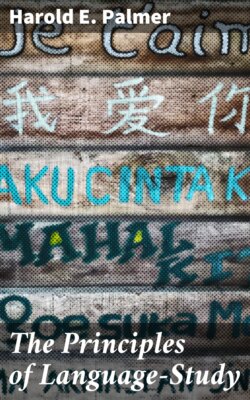Читать книгу The Principles of Language-Study - Harold E. Palmer - Страница 11
На сайте Литреса книга снята с продажи.
8. Habit-forming and Habit-adapting
ОглавлениеTable of Contents
Language-study is essentially a habit-forming process. We speak and understand automatically as the result of perfectly formed habits. No foreign word or sentence is really ‘known’ until the student can produce it automatically (i.e. without hesitation or conscious calculation). No one can understand by any process of calculation (e.g. translation or analysis) the language as spoken normally by the native. Few people (if any) have ever succeeded in speaking the language by a series of mental gymnastics; our progress is to be measured only by the quantity of language-material which we can use automatically. Adult students generally dislike the work of acquiring new habits, and seek to replace it by forms of study dependent upon the intellect, striving to justify their abstention from mechanical work on educational grounds. This fear of tediousness is really groundless; automatism is certainly acquired by repetition, but this need not be of the monotonous, parrot-like type, for there exist many psychologically sound repetition devices and varied drills intended to ensure automatism and interest.
Most of the time spent by the teacher in demonstrating why a foreign sentence is constructed in a particular way is time wasted; it is generally enough for the student to learn to do things without learning why he must do them (due exception being made in special cases, notably that of corrective courses).
The student should not only be caused to form new habits; he should also be helped, when expedient, to utilize some of his existing habits; it is even part of the teacher’s duties to aid the student to select from his previously acquired habits those which are likely to be of service to him.
